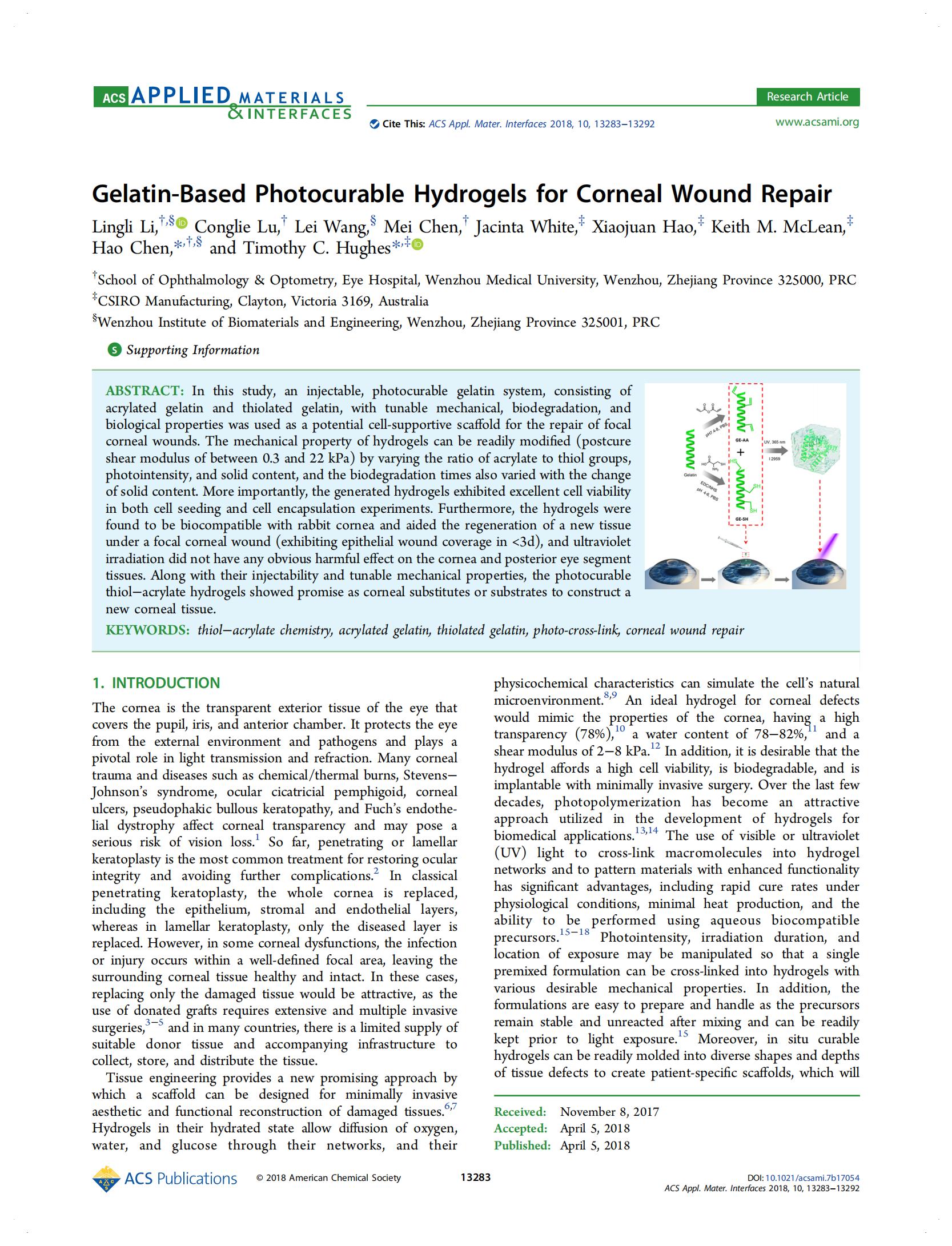In this study, an injectable, photocurable gelatin system, consisting of acrylated gelatin and thiolated gelatin, with tunable mechanical, biodegradation, and
biological properties was used as a potential cell-supportive scaffffold for the repair of focal corneal wounds. The mechanical property of hydrogels can be readily modifified (postcure shear modulus of between 0.3 and 22 kPa) by varying the ratio of acrylate to thiol groups, photointensity, and solid content, and the biodegradation times also varied with the change of solid content. More importantly, the generated hydrogels exhibited excellent cell viability in both cell seeding and cell encapsulation experiments. Furthermore, the hydrogels were found to be biocompatible with rabbit cornea and aided the regeneration of a new tissue
under a focal corneal wound (exhibiting epithelial wound coverage in <3d), and ultraviolet irradiation did not have any obvious harmful effffect on the cornea and posterior eye segment tissues. Along with their injectability and tunable mechanical properties, the photocurable thiol−acrylate hydrogels showed promise as corneal substitutes or substrates to construct a new corneal tissue.
